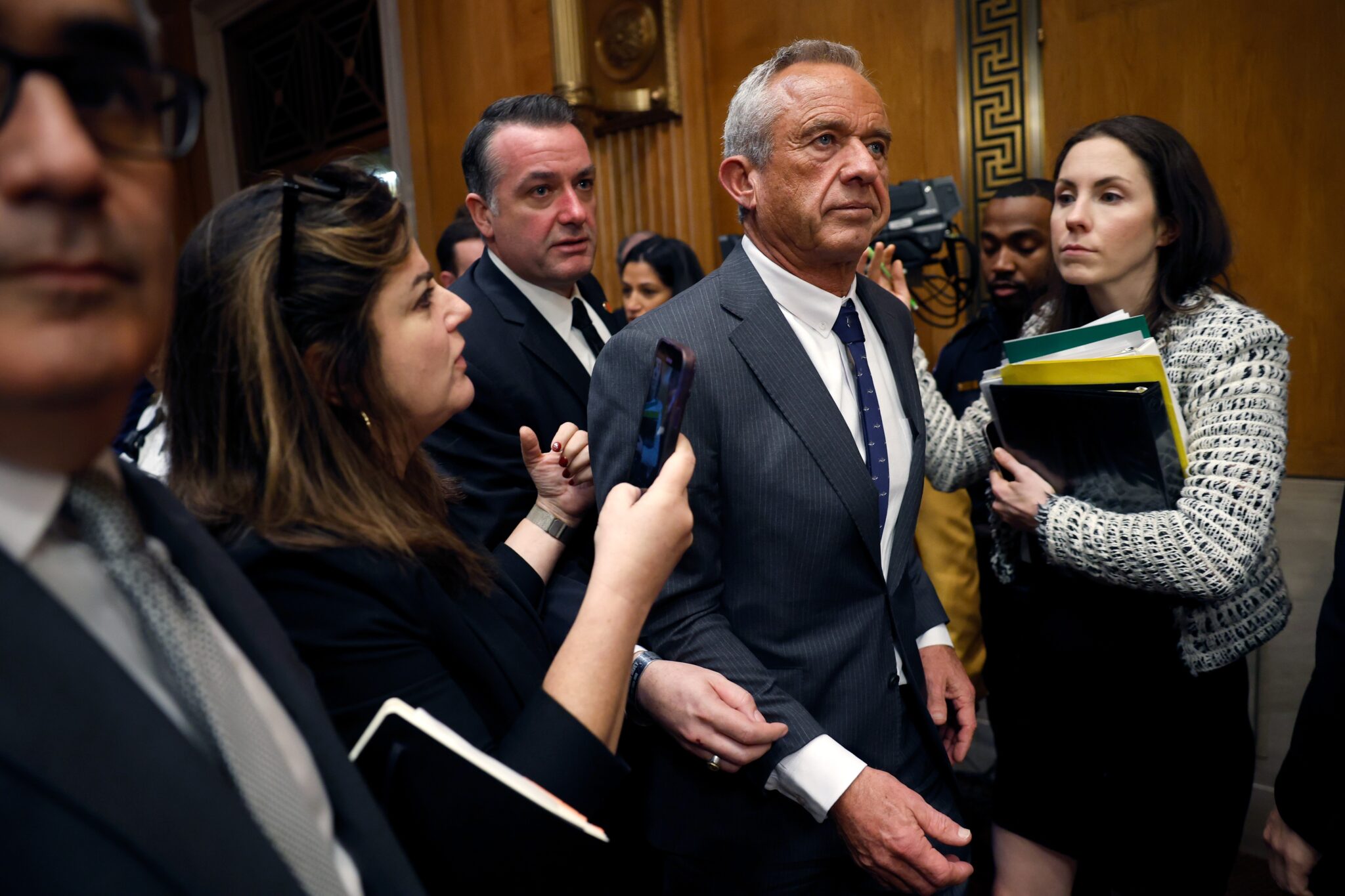Federal Judge Halts Trump's $11B Healthcare Funding Cutoff in Dramatic Legal Showdown
Health
2025-04-04 10:01:08Content

In a significant legal victory for Democratic state leaders, a federal judge in Rhode Island has signaled her intent to temporarily block the Trump administration's attempt to cut critical state health grants. During a Thursday afternoon hearing, U.S. District Court Judge Mary McElroy expressed strong support for the coalition of 24 Democratic attorneys general and governors, suggesting they are likely to succeed in their legal challenge.
The ruling represents a crucial moment for states seeking to protect their healthcare funding amid ongoing federal policy disputes. Judge McElroy's preliminary indication signals a potential roadblock for the administration's proposed grant reductions, highlighting the ongoing tension between federal directives and state-level healthcare needs.
The bipartisan group of state leaders argued that the proposed cuts would severely impact essential health services and potentially harm vulnerable populations. Their swift legal action demonstrates a coordinated effort to challenge what they view as potentially harmful federal healthcare policies.
Legal Showdown: Democratic Attorneys General Challenge Federal Health Grant Cuts
In an unprecedented legal battle that underscores the complex landscape of healthcare funding and administrative power, a coalition of Democratic state officials has mounted a strategic challenge against potential federal health grant reductions, signaling a critical moment in intergovernmental policy disputes.Defending State Healthcare: A Critical Legal Intervention
The Legal Landscape of Federal Grant Controversies
The intricate legal framework surrounding federal health grants represents a complex battleground where state autonomy and federal administrative discretion intersect. Democratic attorneys general have strategically positioned themselves to challenge potential funding cuts, recognizing the profound implications for state-level healthcare infrastructure. These legal maneuvers reflect a sophisticated approach to protecting critical healthcare resources, demonstrating the nuanced mechanisms of governmental checks and balances. Judicial intervention becomes a pivotal mechanism for preserving state healthcare funding, with federal courts serving as critical arbiters in resolving administrative disputes. The potential reduction of health grants could significantly impact vulnerable populations, making this legal challenge not merely a procedural matter but a substantive defense of essential public services.Judicial Perspectives and Constitutional Considerations
U.S. District Court proceedings reveal the complex interplay between executive administrative powers and state-level healthcare needs. Judge Mary McElroy's preliminary assessment suggests a potentially favorable outcome for the Democratic coalition, indicating the court's recognition of the substantial arguments presented against arbitrary grant reductions. The legal strategy employed by the 24 state attorneys general and governors represents a coordinated effort to challenge executive branch decisions that could compromise healthcare accessibility. By seeking temporary injunctive relief, they aim to maintain existing funding structures while presenting comprehensive arguments challenging the proposed cuts.Broader Implications for Healthcare Policy
This legal confrontation extends beyond immediate funding concerns, representing a broader dialogue about healthcare resource allocation and governmental responsibility. The case illuminates the delicate balance between federal administrative discretion and state-level healthcare needs, highlighting the critical role of judicial review in protecting public health infrastructure. The potential ramifications of this legal challenge could establish significant precedents for future intergovernmental disputes, potentially reshaping how federal health grants are negotiated, allocated, and challenged. Each legal argument presented becomes a critical component in defining the boundaries of administrative power and state autonomy.Strategic Legal Mobilization
The coordinated action by Democratic state officials demonstrates a sophisticated approach to legal advocacy, leveraging judicial mechanisms to protect healthcare resources. By presenting a unified front, these attorneys general create a powerful collective strategy that amplifies their individual state's concerns. Their legal approach involves meticulously documenting potential harm, presenting compelling evidence of how grant reductions could negatively impact state healthcare systems. This methodical preparation reflects a professional and strategic approach to challenging administrative decisions.Future Outlook and Potential Consequences
As the legal proceedings unfold, healthcare stakeholders, policy analysts, and government officials will closely monitor the potential outcomes. The case represents more than a singular dispute; it symbolizes the ongoing negotiation between federal administrative powers and state-level governance. The judicial resolution could potentially establish important precedents for future healthcare funding disputes, influencing how administrative agencies interact with state governments in resource allocation and policy implementation.RELATED NEWS
Health

Parking Expansion: U-M Health's Strategic Land Acquisition at Former Kmart Headquarters
2025-03-21 14:35:46
Health

Measles Alert: Starbucks Customers Urged to Monitor Health After Potential Exposure
2025-03-27 18:29:00




.jpg)

